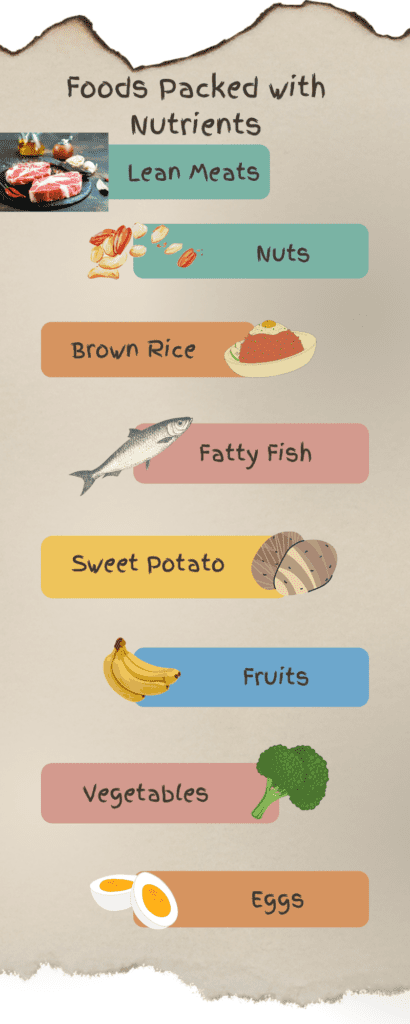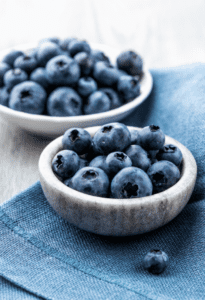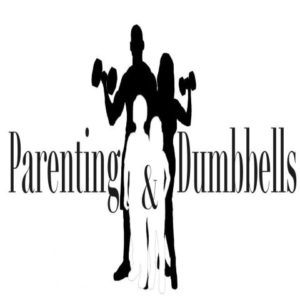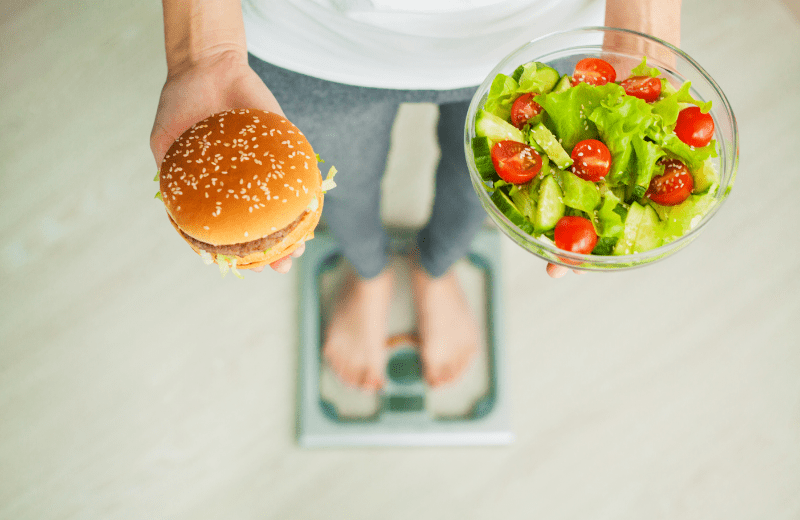Oh…it’s so common.
Sometimes a person will get all fired up with motivation and go on a “diet” to lose weight.
Their diet consist of “healthy eating.”
First day here we go!
“Let me get some egg whites on whole wheat bread with avocado, ah…you know what I’ll have this healthy yogurt over here with granola and raisins as well…oh what’s this a 400 calorie natural papaya juice..I’ll take it!”
This breakfast might have some great health benefits, but it also racks up the calories.
That “healthy breakfast” breakfast alone can get close to 1,000 calories!!!!
Eat like this continuously and you probably won’t lose weight because although it is “healthy eating” it doesn’t mean it is a weight/fat loss diet.
Healthy eating does not mean you are “dieting” for weight loss.
What is the difference between “healthy eating” and dieting?
Healthy eating is eating balanced meals with minimally processed foods rich in nutrients. Dieting, is simply the way you eat. A diet is what you consume daily, whether it is to lose, maintain or gain weight. A diet or “dieting” does not equate to “healthy eating” and healthy eating does not equate to “dieting.”
So what is healthy eating?
Healthy eating means you’re eating foods that are rich in minerals, nutrients, and vitamins. These foods are minimally processed and are usually whole foods. Foods like fruits, vegetables, whole grains, lean and properly processed meats etc are considered healthy foods.
These healthy foods come in the form of carbohydrates, proteins, and fats.

Most of the foods in the above charts like nuts, fatty fish, rice etc..can add up the calories if you overconsume them.
They offer great nutritional benefits but also carry a fair amount of calories.
If you were to overeat these foods, you will gain weight, just like overeating any other food.
Why is healthy eating important?
Your body needs the proper vitamins, minerals and nutrients to perform optimally and fight off diseases. These vitamins, minerals, and nutrients are often found in healthy foods like shown in the above chart.

Take blueberries for example.
Blueberries are rich in antioxidants, help cognitive functions, improve your blood pressure and are full of micronutrients. If you were to opt for heavily processed foods and desserts like ice cream you wouldn’t get these benefits.
The benefits blueberries and other healthy foods provide have been shown to be instrumental in keeping us healthy, strong and living longer.
What is dieting?
Dieting is the active form of a “diet”. When we are dieting we are purposely following a “diet”.
In today’s terms when we think of diets we think of eating smaller portions of foods in an effort to lose weight.
But a diet is actually whatever you are currently eating day in and day out.
A diet can be a form of eating to lose weight, maintain your weight or gain weight. It can also be a nutritional plan followed for certain health purposes like diabetes.
BUT…
Healthy Eating Does not Mean Dieting for Weightloss
The problem lies when people believe that because they are eating “healthy” they are going to lose weight. Once again we use the all too realistic example of the man or woman deciding they are going to lose weight by eating healthy.
They start eating “healthy” alright, but eating healthy can lead to weight gain when you eat more calories than what your body needs.
Does this make sense?
That avocado sandwich, yogurt and granola can actually make you gain weight as opposed to a single pop tart.
Now of course the avocado sandwich is better but it DOES NOT EQUATE to weight loss because the avocado is full of fat, (albeit good fats) and that adds up in calories.
No…
We aren’t telling you go to the poptarts, so put them down!!
We are simply saying, eat healthy but be mindful that when you are “dieting” for weight loss, it is not about eating healthy, it’s about restricting calories so your body is forced to burn fat for fuel.
Once your body is in a calorie deficit then you want to focus on eating mostly nutrionally dense foods.
Which is a better way to manage your weight? Dieting or Eating Healthy?
The simple answer is: BOTH.
Whether you are dieting to lose, maintain, gain weight or for health purposes, the foods that make up your diet should be “healthy” as described above.
Say you are attempting to lose some weight. Simply eat in a calorie deficit and choose whole foods that will give your body the nutrients it needs while stripping off the bodyfat.
If you are attempting to gain weight, eat in a calorie surplus choosing foods that, again, will provide your body with all the vitamins, minerals and nutrients it needs.
In conclusion, remember that just because you are eating “healthy” it doesn’t mean you are eating to lose weight. You can be eating healthy foods that are very calorically dense making you gain weight over time. The best route is to find what kind of diet you need to be on (lose, maintain, gain, health driven) and pick the most nutritionally sound foods while still being mindful of your overall calorie intake.

